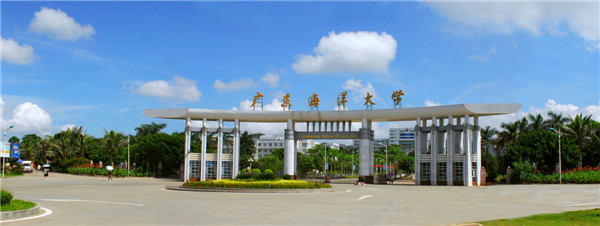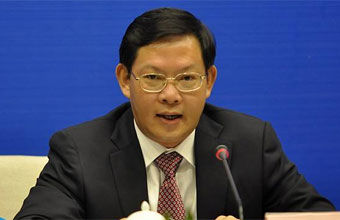Home> Innovation
Guangdong Ocean University
Guangdong Ocean University is a provincial key university, jointly built by the provincial government and the State Oceanic Administration. It’s a comprehensive multi-disciplinary university featuring aquaculture and marine engineering. Its undergraduate education is strong, according to the Ministry of Education. It confers bachelor’s, master’s and doctorate degrees.
The university is located in Zhanjiang, a beautiful coastal city at the mainland’s southernmost point, with Huguang, Xiashan and Haibin campuses. The three campuses cover an area of 4,892 mu (3,261,333 square meters), of which the Huguang campus takes up 4,083 mu. The university, surrounded by mountains and facing the ocean, is an ideal place for students.

The university has 18 secondary schools, in the fields of fisheries sciences, food science and technology, marine science and meteorology, agricultural science, engineering, economics and management, navigation, information technology, software engineering, science, humanities, law, foreign studies, political science and public administration, sports and leisure studies, arts, vocational education and continuing education. It also has a teaching department of ideological and political theory, and an affiliated college, Cunjin College.
The university has three first-class disciplines – aquaculture, food science and engineering and marine science – for the doctor's degree, five first-class and 21 second-class disciplines for the master’s degree, as well as 67 undergraduate programs and 39 higher vocational college programs.
There are 1,914 teachers, including 1,319 full-time teachers, 556 people with vice-senior titles or above, 279 doctorate holders, 19 doctoral advisors, 226 postgraduate advisors, three academicians, two Pearl River Scholar specially-appointed professors, and six professors enjoying a special government allowance.
A total of 105 people have been chosen as candidates of the Thousand-Hundred-Ten Project (a talents cultivation project in Guangdong, including 1,000 potential backbones in teaching and learning, 100 excellent academic leaders and 10 top-notch elitists with influence at home and abroad), with six having been chosen to receive excellent teacher cultivation in Guangdong, three chosen to receive high-level talented person cultivation in Guangdong’s Yangfan Program, and eight professors having been appointed by the Ministry of Education as members of the ministry’s steering committee for education in institutions of higher learning.

 Print
Print Mail
Mail 5G construction supports Zhanjiang's high-quality development
5G construction supports Zhanjiang's high-quality development
 Acting mayor inspects project construction in Xuwen, Leizhou
Acting mayor inspects project construction in Xuwen, Leizhou Zhanjiang island an "egret paradise"
Zhanjiang island an "egret paradise"  Dancing egrets add vitality to Xiashan
Dancing egrets add vitality to Xiashan